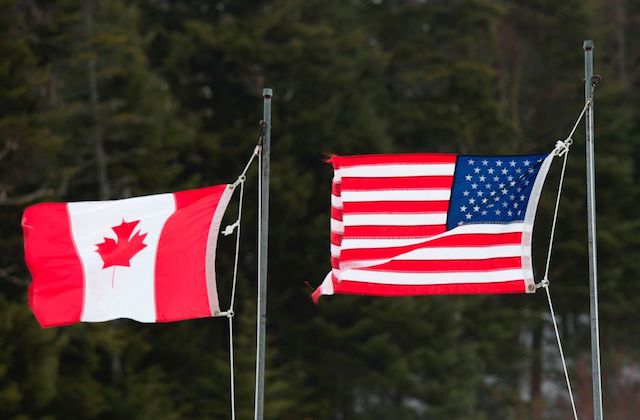More than 60 Iranians and Iranian Americans were detained for hours by Customs and Border Protection (CBP) on January 4 and 5 while departing Canada for Washington state. According to The New York Times, CBP claims extra security precautions needed to be taken at American ports of entry in response to Iran’s threat “to retaliate against the United States for the strike that killed its top military leader.”
Advocacy group Church World Service released a statement demanding an end to the practice. The statement read:
Questioning and detaining the political views and allegiances of Americans with perceived foreign backgrounds echoes some of the darkest times in our nation’s history and is akin to Japanese-American internment. Iranian-Americans are already impacted by the administration’s unjust and discriminatory Muslim and refugee bans.
The Washington state chapter of Muslim civil rights and advocacy organization Council on American-Islamic Relations (CAIR-WA) announced that its organization is assisting the people who were held and questioned at the Peace Arch Border Crossing in Blaine, Washington. Organization leadership said that although nearly 60 people were held for questioning, many more were outright refused entry into the U.S. because CBP couldn’t handle the large number of people.
According to CAIR-WA:
Those detained reported that their passports were confiscated and they were questioned about their political views and allegiances. CBP officials contacted at the Blaine Port of Entry provided no comment or reasons for the detentions.
[…]
A source at CBP reported that the Department of Homeland Security (DHS) has issued a national order to CBP to “report” and detain anyone with Iranian heritage entering the country who is deemed potentially suspicious or “adversarial,” regardless of citizenship status. CBP at the Peace Arch Border Crossing did not confirm or deny this report.
Masih Fouladi, executive director of CAIR-WA, called these reports “extremely troubling” and said in a statement that his team is “working to verify reports of a broad nationwide directive to detain Iranian Americans at ports of entry so that we can provide community members with accurate travel guidance.”
Most of the travelers targeted by CBP were returning home to the U.S. following work trips and vacations, The Times reports, and many were released after they were questioned. Gil Kerlikowske, a former commissioner of CBP, told The Times that this type of security precaution isn’t unusual when a traveler’s country of origin has been singled out as a national security threat.
“If you were an Iranian citizen returning from the British Columbia, you would be sent to secondary [screening] as a result of the increased tension with that country,” Mr. Kerlikowske said. “It wouldn’t be the main factor in many cases, but certainly in this particular instance the country of origin would be the determining factor.”
CBP officials so far have not confirmed if travelers attempting to enter the U.S. at the Blaine port of entry were targeted because of their country of origin.
